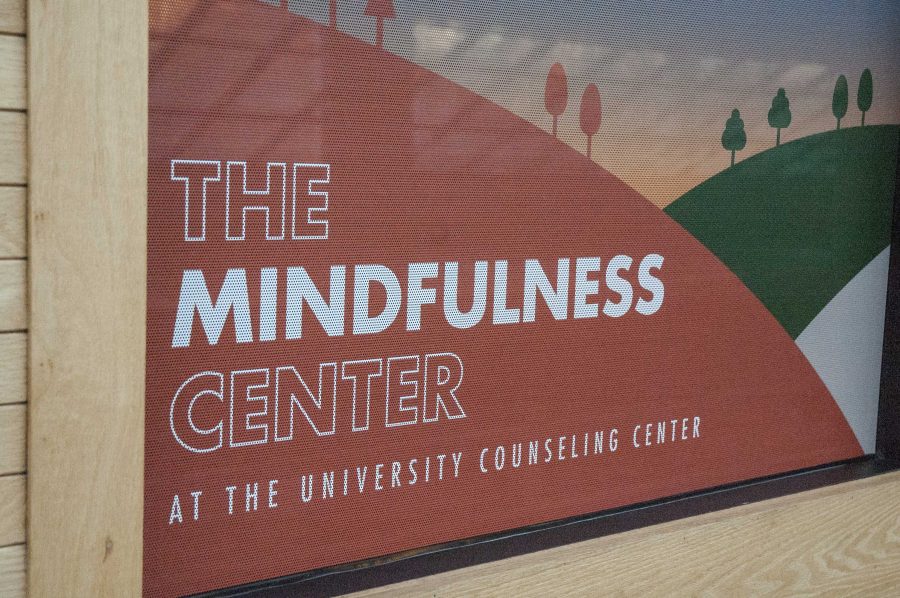The fascination of attaching self-care in our lives — particularly among millennials — has erupted into a billion-dollar industry. Self-care topics and advice range from workout regiments and gym memberships to painting and other artistic work to delving into spiritual and emotional needs. This focus on self-care has increased in the last few years.
How and why is self-care suddenly arresting in our lives? Jenna Matsumura, the outreach coordinator for the Women’s Enrollment Initiative at the University of Utah, might have an idea.
For February, the Women’s Enrollment Initiative and the Center for Student Wellness are co-hosting a workshop entitled, “GEM: Intimacy with Self and Others.”
The Women’s Enrollment Initiative’s goal is to “recruit, retain, and graduate women through a network of support” which is achieved through the Women’s Resource Center and events like these that identify opportunities for women and support them through the process of reaching their goals. The Center for Student Wellness has similar goals for student success. According to their website, they aim “to help students have successful academic and personal experiences by encouraging comprehensive wellness.” This goal is achieved through education and resources like the GEM workshop, general health education and advocacy services like the victim-survivor advocates.
“Participants, who join us — we will be talking a lot about how they know if they’re intimate with someone? What are their most intimate relationships? What does society tell us what intimacy is?” Matsumura said.
The workshop will also focus on learning about the five love languages, a popular form of learning how to detect varieties of communications that express love — whether it is romantic or aromantic. It also focuses less on the traditional mechanics of love to others and more about the interactions with ourselves and how we carry that into other relationships.
“It’s not a coincidence that it’s going to be held the day before Valentine’s Day, which is a capitalist scheme to highlight a very specific type of romantic relationship that is not present in all people’s lives,” Matsumura said. “The fact that we don’t have a national holiday that is about self-care, that is about loving yourself and taking the time to be vulnerable with yourself, is an indicator that society tells us to value one type of intimacy over another.”
“I also think that self-care is a practice and you know, language that has been used by marginalized people throughout history in order to survive the oppression these days,” Matsumura said. “Although the message was historically an ode to marginalized populations to self-care when systemic relations did not serve any interest in their favor the practice of self-care today can be accessible for everyone.”
In response to what taking care of yourself looks like, Mayra Repetto, a junior in biology, also says self-care isn’t universal and takes many different forms. “I mean that [self-care] might be different for everyone, whether it be exercising, or hanging out with friends or wine and bath-bombs. That’s how I would define it.”
Repetto does partake in many of the aforementioned activities many see as self-care across popular platforms online. She disagrees that self-care is fulfilled through purchasing material goods pushed by companies, however. Practices such as meditation, yoga or running can fulfill these needs and are offered across campus. The U has various resources for students, ranging from an active UCard functioning as a membership to the Student Life Center, to on-campus counseling in groups or individually, to the Social Justice Advocates in Housing and Residential Education. Other centers on campus alongside the Women’s Resource Center and the Center for Student Wellness, like the Center for Ethnic Student Affairs (CESA), the Center for Disability and Access and Learning Success Center are all aimed at helping students take care of themselves academically, personally and everything in between.
“I think that there’s a lot of ways that you could do it without doing that. But yeah, I do think it’s pushed by media a lot,” Repetto said.
With the incessant pull to employ self-care for young demographics, Repetto said the reason why many are attracted to self-care is that “our generation is more competitive and we’re expected to have a bit more knowledge and classes are more difficult.”
Emi Ataata, a graduate assistant for WEI, will host the upcoming workshop.
The workshop will fall on Wednesday, Feb. 13 from 12:30 p.m. to 1:30 p.m. and will be held in Room 312 at the A. Ray Olpin University Union.



